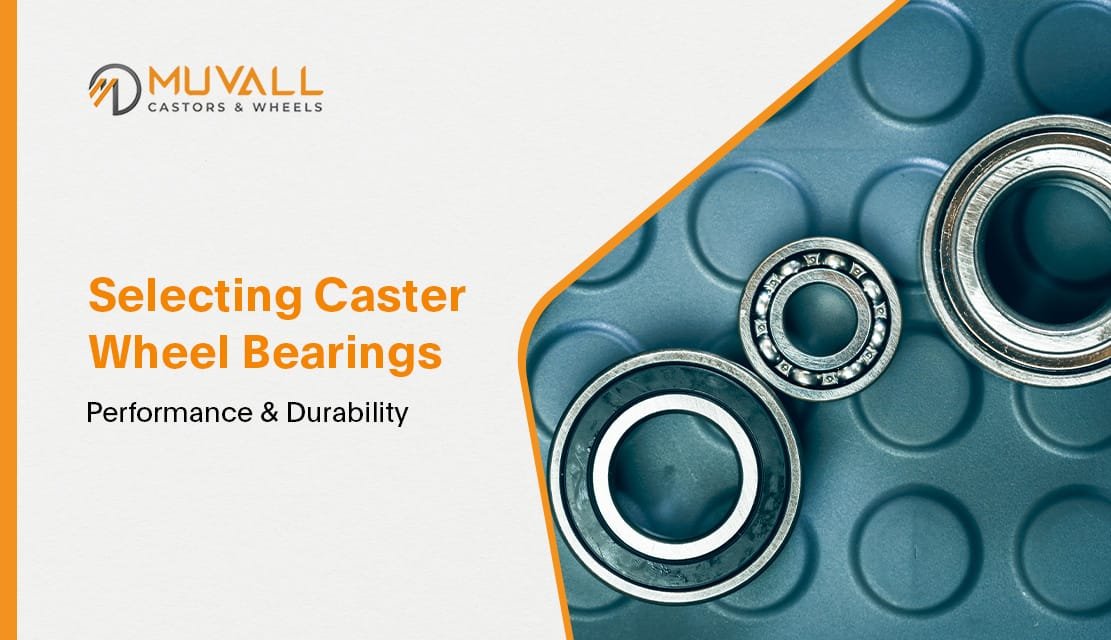
The type of bearing used is key to the performance, usability and durability of industrial caster wheels. Muvall, one of the best caster wheel manufacturers, understands the significance of selecting the right caster wheel bearing to ensure smooth operations.
That is why we are here to explore the different types of caster wheel bearings and help you make the best choice for your needs. So, read on!
Caster wheel bearings are important parts that enable wheels to turn or rotate smoothly around their axes. They reduce friction between the wheels and the axle. This way, they not only make the movement easier but also extend the lifespan of the wheel and the equipment.
The type of bearing you choose can influence load capacity, maintenance requirements, speed and overall performance. However, with so many types of bearings available in the market, you must understand the pros and cons of each to select the most suitable option for your needs.
Here are the most commonly used types of caster wheel bearings along with their pros and cons:
These are the most common types found in caster wheels. Ball bearings are made up of small balls inside a ring that allows the wheels to turn smoothly.
Needle bearings are a type of roller bearing that uses long and thin rollers. They can handle heavy loads while being compact in size.
Roller bearings use cylindrical rollers instead of balls. This design allows for better support of heavy load by creating more surface contact.
Plain bearings, also called sleeve bearings, consist of a simple sleeve that the axle rotates within. This design is straightforward as it has no moving parts.
Composite bearings are made from modern materials like plastics or polymers. It offers a modern alternative to traditional metal bearings.
You can make the best choice for your needs if you keep the following factors in mind when choosing a caster wheel bearing:
Assess the weight the wheels will need to support. While roller needle bearings are usually the best option for heavy loads, lighter loads may benefit from ball bearings.
Consider how much maintenance you are willing to handle. Plain or composite bearings could be the best fit if you want something that requires little maintenance.
Related: Industrial Trolley Wheels: How to Maintain Them to Ensure Longevity?
Consider where the casters will be used. Since composite bearings resist corrosion, they are a great choice for wet or chemical heavy environments.
Look at how much you can spend on bearings. Remember that while some specialized bearings might cost more initially, they could save you money on maintenance and replacements later.
If your application involves high speed movement, ball or magnetic bearings can give you the performance you need.
To summarize, selecting the right caster wheel bearing type is crucial to ensure smooth operation, reduce maintenance costs and extend the lifespan of the equipment. You can make better choices that enhance the efficiency of your operations by understanding the differences between the bearing types.
We at Muvall offer a wide variety of caster wheels with different bearing types to meet your specific industrial needs. Whether you are looking for heavy duty support or lightweight maneuverability, we have the right solution for you! So, if you have any queries or need help selecting the right casters & wheels, do not hesitate to contact us!